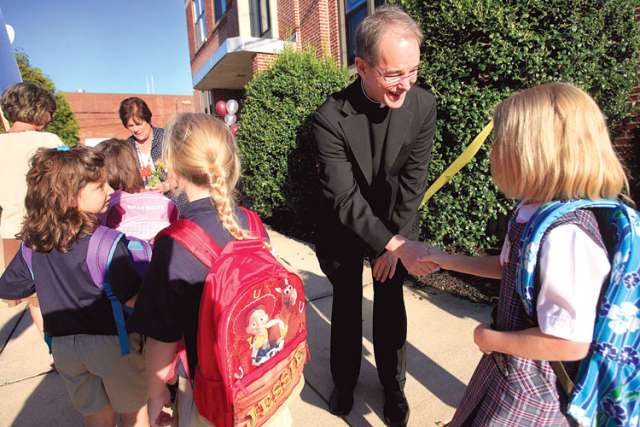September begins with the anticipation and hope that it will be a good year. For the vast majority of parents who send their children to Catholic schools, survey after survey has indicated a high degree of satisfaction. But there are some things that educators and parents can do to ensure a successful school year. I would like to share those with you.
School councils: School councils provide an active way for parents to contribute to a child’s learning. Every publicly funded school in Ontario is required to have a school council. School councils improve student achievement and accountability but they also provide advice to principals in a number of areas. Additionally, councils in Catholic schools have an obligation to ensure the Catholic nature of a school is being lived out daily. Even if a parent is not on the executive of a school council, they should try to attend meetings to help ensure a successful school year.
School trustees: Voters go to the polls Oct. 27 to elect a number of municipal officials. But even though school boards are a major employer, with one of the largest budgets and most important mandates in the city or region, voters often don’t bother voting for school trustees. Every Catholic who values Catholic education should ensure that the people who sit around the table and provide good stewardship to Catholic education are the best and the most faithful that our community can put forward.
The role of the trustee is to serve the Catholic school community. Those who see it as a stepping stone to other political office do the position a disservice. It is a ministry and it is meant to assist our faith in its development.
That’s not to say that the role is without political aspects, but if a trustee approaches the job as a political position then inevitably the methods and attitudes prevalent in politics take over. Instead, trustees are part of a ministry of service — to the community and to the Church — that relies on a different set of skills to achieve goals that promote the common good over special interests.
Trustees are involved in the governance of Catholic education. They set policies, approve budgets and oversee a host of other duties identified under the Education Act. It is an important role and if we care about Catholic education we’ll care about who is at the table in our school boards.
Parish-school relationships: An ongoing concern is maintenance of good parish-school relationships. More than just another task for pastors, school administrators or school councils, each school parish must see this as a priority.
We need pastors to speak about the value of Catholic education throughout the year, recognizing its role in the mission of the Church and the creation of citizens. Our pastors need to communicate to the larger community — to those with students in the Catholic system and those who continue to support Catholic education but no longer have children in the system — the value and the goals of Catholic education. Church bulletins should contain information about school events and contact information for principals, and school newsletters should contain columns from the pastor, his contact information and the times of Masses.
There should be a conscious effort to welcome pastors into our schools and, in the same way, for pastors to invite principals and staff to churches throughout the year. It’s important that schools, parishes and parents work together in the same mission.
Schools should develop pastoral plans that identify the liturgical pastoral services and events scheduled for the coming year and that plan should be posted in churches for all to see. Most of our schools produce outstanding work throughout the year and it populates school bulletin boards, but why shouldn’t that material find its way to the lobby of our parishes? Likewise, when schools hold an open house or meet-the-teacher night it would speak volumes if a pastor or parish representative could attend.
As September starts up and thousands and thousands of students are welcomed into our elementary and our secondary schools, I encourage parents to participate in school councils, learn about those running for trustee and work with your schools and parishes to create a seamless fabric that brings parish, school and home together.
(Kostoff is the Director of Education for the Dufferin-Peel Catholic District School Board and the author of Auditing Our Catholic Schools.)


